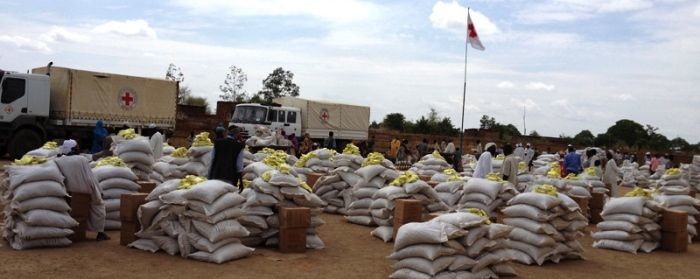The International Committee of the Red Cross announced yesterday that it has not been allowed to resume its work in Sudan after nearly three months, explaining that this is having “severe consequences for the Sudanese population in areas affected by the armed conflict.”
ICRC was ordered to stop working ahead of the Sudanese government’s summer offensive, which has caused massive displacement over the last few months.
“We are increasingly concerned about the humanitarian situation in some parts of the country and are calling on the Sudanese authorities to lift the suspension – be it on a temporary basis while discussions take place – in order that the humanitarian needs of people benefiting from ICRC programmes can be addressed, said Eric Marclay, the ICRC’s head of operations for East Africa.
The ICRC’s activities in Sudan were suspended on 1 February at the order of the country’s Humanitarian Aid Commission, the government body in charge of relations with humanitarian organizations.
The commission cited technical issues, while the Sudanese government asked the ICRC to review the legal agreement dating back to 1984 that sets out the organization’s legal and diplomatic status in the country.
ICRC said it was willing to renegotiate the agreement but that several weeks of ‘constructive negotiations’ ended with delays and little progress.
The Red Cross now must downsize its team in Sudan, according to the press release. “We deeply regret having to lay off 195 of our 650 Sudanese staff, but we have no choice,” said Marclay.
ICRC says that last year it helped 426,000 Sudanese living in areas affected by conflict with food aid, 325,000 with farming tools and seed, 72,500 patients at ICRC-supported health facilities, and over 1,400 persons injured in armed clashes.
Photo: ICRC staff prepare stacks of food, seed and farming tools for distribution to families from the Jebel Marra region, Darfur, 2013 (ICRC)




